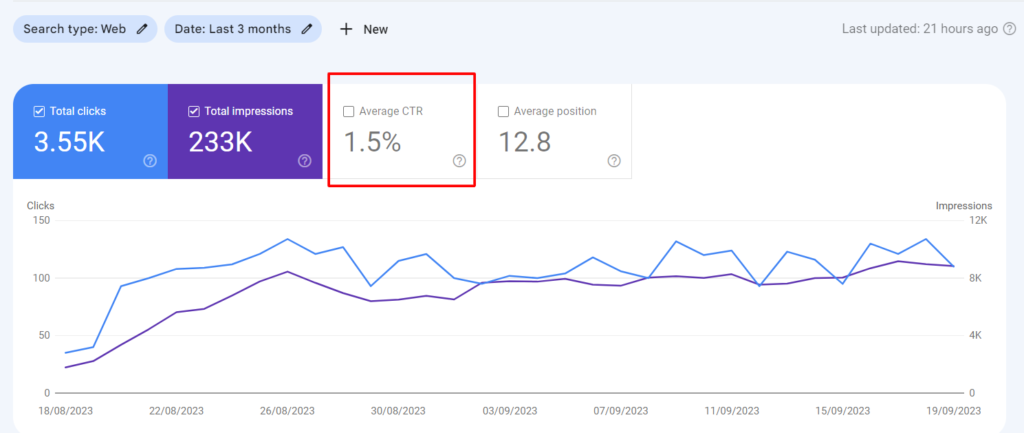Meta descriptions are a crucial element of on-page SEO (Search Engine Optimization) and serve several important purposes in the world of digital marketing and website optimization:
- Improving Click-Through Rates (CTR): One of the primary purposes of a meta description is to provide a concise, informative, and enticing summary of the page’s content. When a user performs a search on a search engine, the meta description is often displayed in the search results. A well-crafted meta description can grab the user’s attention and encourage them to click on your link, thereby increasing your website’s CTR.

- Enhancing User Experience: Meta descriptions help users understand what a web page is about before they click on it. This transparency ensures that users are more likely to click on a page that matches their intent and interests, reducing bounce rates and improving overall user satisfaction.

- Boosting SEO Rankings: While meta descriptions themselves do not directly impact search engine rankings (Google has stated that meta descriptions are not a ranking factor), a higher CTR resulting from compelling meta descriptions can indirectly boost rankings. When more users click on your search result, it signals to search engines that your page is relevant and valuable, potentially leading to improved rankings over time.

- Providing Additional Keyword Opportunities: Including relevant keywords in your meta descriptions can reinforce the page’s content and its relevance to specific search queries. While keyword stuffing is discouraged, strategic use of keywords in meta descriptions can signal to users and search engines that your page addresses their needs.

- Differentiating Your Content: In a sea of search results, a well-crafted meta description can set your page apart from the competition. It allows you to showcase what makes your content unique, whether it’s a special offer, unique insights, or a solution to a common problem.
- Improving Social Sharing: Meta descriptions often serve as the default text when a web page is shared on social media platforms. A compelling meta description can encourage users to share your content, increasing its visibility and potential reach.
- Reducing Duplicate Content Issues: Providing unique meta descriptions for each page of your website helps prevent duplicate content issues. Search engines may penalize sites with identical meta descriptions across multiple pages, as it can be seen as a lack of effort to provide valuable information.
FAQ – Frequently Asked Questions
- Meta Description:
A meta description is a brief HTML tag that provides a concise summary of the content on a web page. It typically appears in search engine results pages (SERPs) and helps users understand what a webpage is about before they click on the link. - Meta Description Generator:
A meta description generator is a tool or software that automatically generates meta descriptions for web pages. These tools can be helpful for creating compelling and concise descriptions. - Meta Description Length:
Meta description length refers to the maximum number of characters that should be used in a meta description. While this length can vary, a common guideline is to keep it under 160-170 characters to ensure it displays properly in search results. - What is Meta Descriptions:
This term seems to be a variation of “What is a Meta Description” and serves the same purpose, explaining the concept of meta descriptions. - Meta Description Character Limit:
The meta description character limit refers to the maximum number of characters, including spaces, that should be used in a meta description. As mentioned earlier, it’s typically recommended to keep it under 160-170 characters. - Meta Description Example:
A meta description example is a demonstration of what a well-crafted meta description looks like. It often includes a snippet of text used in search results. - Meta Description Meaning:
Meta description meaning describes the significance of meta descriptions in SEO and user experience, emphasizing their role in summarizing webpage content. - Meta Title and Description Length:
This term suggests that both the meta title (title tag) and meta description should be considered when determining the length of metadata for a webpage. Both elements impact how a webpage is displayed in search results. - What is the Maximum Character Count for Meta Description:
This phrase inquires about the maximum recommended character count for a meta description, which is typically under 160-170 characters. - How to Write a Meta Description:
This phrase explores the process of creating effective meta descriptions, including tips and best practices. - Meta Description in SEO:
This term highlights the relevance of meta descriptions in search engine optimization, emphasizing their impact on organic search results and user engagement.
In summary, meta descriptions are an essential part of your website’s SEO strategy, contributing to improved CTR, user experience, and overall search engine visibility. Crafting informative and engaging meta descriptions tailored to each page’s content is a best practice for any website looking to succeed in organic search and drive more qualified traffic.

